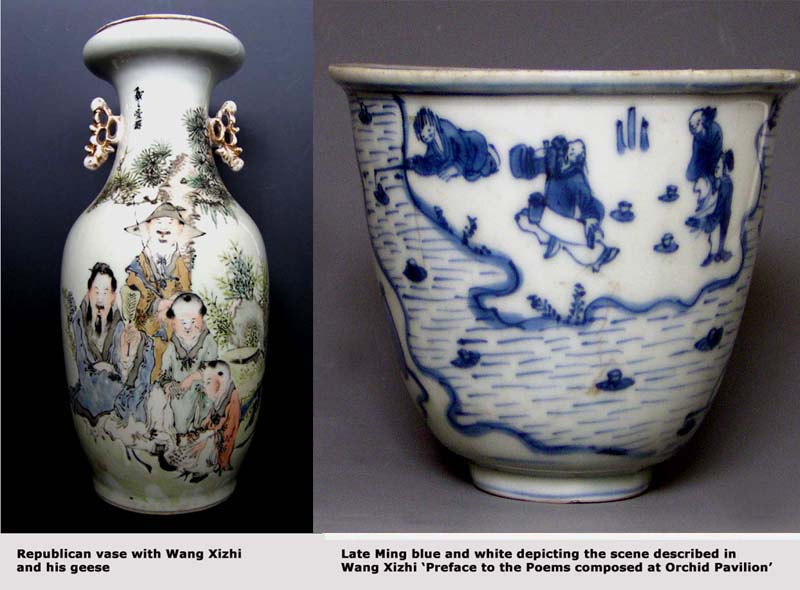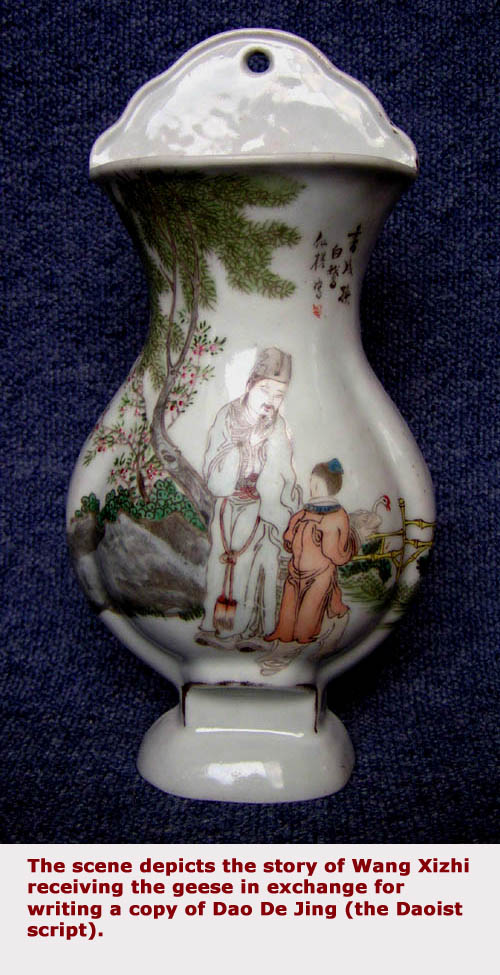
Wang Xizhi
¡¡
Wang Xizhi (ÍõôËÖ®, 303¨C361 A.D) was a great Chinese calligrapher and honoured as the Sage of Calligraphy (•øÂ}). He was particularly famous for his semi-cursive script (ÐЕø). Unfortunately, none of his original works survived.
His most famous work is 'Lanting Ji xu' ie the Preface to the Poems Composed at the Orchid Pavilion (Ìmͤ¼¯Ðò). It describes a gathering of 42 literati at the Orchid Pavilion near Shaoxing, Zhejiang, during the Spring Purification Festival to compose poems and enjoy the wine. They sat along the bank of a winding creek. Wine cups were floated down the creek. Whenever a cup stopped, the man closest to the cup was required to empty it and write a poem. A total of thirty-seven poems were composed.
According to legend, the original copy of 'Lanting Ji Xu' subsequently ended in the possession of monk Biancai. Emperor Taizong of Tang liked Wang's calligraphy very much. He learnt that monk Biancai had the original copy of Lanting Xu. He sent officials on three occasions to retrieve the text. But Biancai claimed that it was lost. Finally the censor Xiao Yi was ordered to find a way to get it. He disguised as a wandering scholar and managed to gain the confidence of Biancai. He tricked Bancai to show him the "Lanting Ji Xu'. Upon see it, he revealed his true identity and seized the text. The emperor Taizong had it traced, copied, and engraved into stone for posterity. But he loved it some much that he had the original interred in his tomb after his death.
Wang Xizhi is also famous for his love of geese. According to Legend, he learnt how to turn his wrist while writing by observing how the geese move their necks. According to a story, a Daoist priest who admired Wang Xizhi's calligraphy, wanted a Daoist script ( Dao De Jing, another version was Huangting Jing) written by Wang Xizhi. Knowing his love of geese, he reared some beautiful geese and told Wang Xizhi that he would parted with the geese Wang Xizhi agreed to make him a handwritten copy of the Daoist script. Expectedly Wang Xizhi agreed. Scene showing Wang Xizhi and his geese or him copying the Daoist script was depicted on chinese ceramics frequently especially during the late Qing and Republican period.
¡¡

¡¡

¡¡
¡¡
¡¡
¡¡
¡¡
¡¡
¡¡
¡¡
¡¡
¡¡
¡¡
¡¡
¡¡
¡¡
¡¡